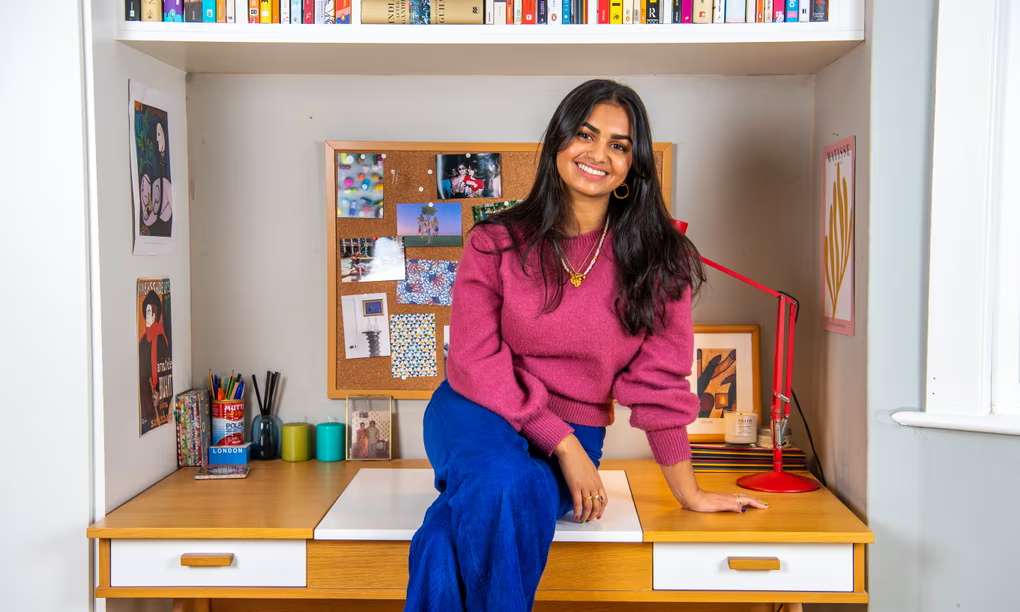Amika George: British Activist and Period Poverty Campaigner

Image: Jill Mead/The Guardian
Amika Sara George MBE, born on October 4, 1999, is a British activist who has gained international recognition for her campaign against period poverty in the United Kingdom. Her work has led to significant policy changes and raised awareness about menstrual health and education equality.
Early Life and Education
George was born and raised in Edgware, north-west London, to parents of Indian heritage. This multicultural background would later influence her perspectives on social justice and equality. Currently, she is pursuing a degree in History at Murray Edwards College, University of Cambridge, where she has studied Indian colonial history and Britain’s ties to the slave trade.

Activism and “FreePeriods” Campaign
At 17, while still in secondary school, George launched the “FreePeriods” campaign in April 2017. A news article sparked the initiative she read describing how many economically disadvantaged British women were missing school due to the stigma surrounding menstruation and the inability to afford sanitary products.
George’s campaign began with an online petition addressed to the UK government, which garnered over 200,000 signatures. She organized protests aimed at convincing the government to provide free sanitary products to schoolchildren. These events featured prominent speakers such as Adwoa Aboah, Suki Waterhouse, and Daisy Lowe.
Explaining her motivation, George stated, “We need to make it very clear that we want to see equal access to education for all young people.” Her campaign highlighted the lengths to which young people who menstruate go when they cannot afford proper sanitary products, including using items of clothing or toilet paper, or using the same tampon for multiple days, risking their health.
Impact and Policy Change
George’s efforts contributed significantly to raising awareness about period poverty and pressuring the government to take action. In March 2019, then-Chancellor of the Exchequer Philip Hammond announced that secondary schools in England would receive funding to provide sanitary products free of charge to economically disadvantaged students.
While welcoming this announcement, George and her fellow campaigners advocated for the initiative to be expanded to primary schools and enshrined in law to ensure its continuation under future governments.
Recognition and Awards
George’s activism has earned her numerous accolades:
- Listed on Time’s Most Influential Teens of 2018
- Included in The Big Issue Top 100 Changemakers
- Featured in Teen Vogue’s 21 under 21 list (nominated by Emma Watson)
- Recipient of a Bill & Melinda Gates Foundation Goalkeepers Campaign Award in 2018
In 2021, at the age of 21, George became the youngest recipient of a Member of the Order of the British Empire (MBE) in that year’s Birthday Honours list, recognized for her services to education.
Perspectives on Activism and Recognition
George’s approach to activism demonstrates a nuanced understanding of social issues and their historical context. When considering the implications of her MBE, she expressed initial discomfort, describing the British Empire as “a horrific and exploitative endeavor.” However, she ultimately decided to accept the award to increase the representation of young people of color in politics and activism.
As she continues her studies at Cambridge University, Amika George remains a prominent voice in the fight against period poverty and an inspiration to young activists worldwide. Her work underscores the potential for young people to effect significant social change through dedicated advocacy and awareness-raising efforts.
Bidisha Ghosh, Staff Reporter









